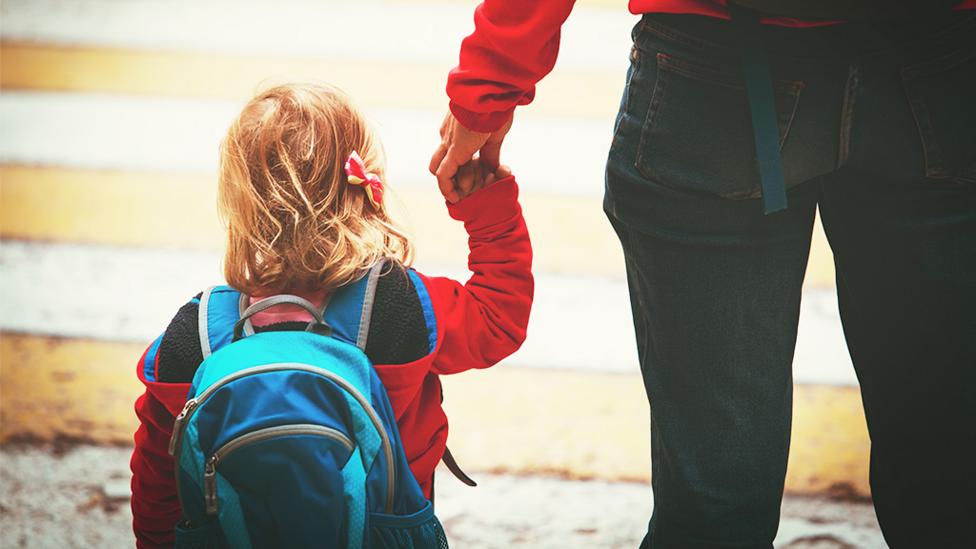Independence skills for starting school
Starting school is a big step for children and can cause them (and their grown-ups) both excitement and anxiety. However, there are some practical skills that you can work on with your little one to ease the transition. Read our tips below for building their confidence and helping them to settle into a new routine. With a bit of preparation your child can feel happy and confident starting on this new adventure!

听听
1. Getting dressed
It might be quicker to get your child ready yourself at home, but they鈥檒l definitely need to handle their own wardrobe crises when they get to school. Dressing up is a fun way to practice these skills at home, and using chunky buttons, velcro and zips at first makes it much easier for little fingers. Being able to tie shoelaces and zip up coats can really give kids a head start at school and will make life much easier for the teacher! Sing along together with Mr Tumble's Shoelace song to get started.
Try this: make a visual schedule to help children remember the order for doing things like brushing teeth and getting dressed, and use it to practice the morning routine before term starts.
听听
2. Making friends
Meeting a whole classroom full of potential playmates can be really intimidating for little ones. Helping your child to think of ways they might start a conversation calms nerves and puts them back in control of the situation. Although sharing and taking turns can be a challenge for little ones at first, these are important life skills that will help them make and keep friends, just like Duggee and the Squirrels.
Try this: Invite friends with young children around to play over the summer. Organise games that involve taking turns, and praise kids when you see them being kind and thoughtful. Play dates can be a great opportunity to build confidence and practice essential social skills.
听听
3. Eating
Avoid potential lunchtime panics by making sure kids know what to expect. If they鈥檙e taking a packed lunch to school, make sure they can open the containers and peel the fruit. If they鈥檙e going to be having school dinners it鈥檚 worth practicing eating different kinds of food with cutlery. You could also talk about how to cope if they鈥檙e served something they鈥檙e not keen on.
Try this: Over the summer, try to head out for picnics (you could even bring the same packed lunch they鈥檒l have in school) and practice eating in a group whenever you can. If your child is a fussy eater then follow our top tips for how to handle this.
听听
4. Handling emotions
It鈥檚 completely normal for children to get emotional during those first few weeks of school, so help them be prepared for difficult feelings. Ensure they understand that it鈥檚 okay to get things wrong or to feel shy. Practice techniques for calming themselves down if they get upset or worried.
Try this: Make time before bed to talk together about how the day went and discuss any worries they might have about tomorrow.
听听
5. Communicating
As well as listening and concentrating in the classroom, little ones will need to be able to follow simple instructions and know how to ask for help when it's needed. Confidence in communicating with grown-ups can help them to feel happy and settled early on in school, just like the monsters at the School of Roars!
Top tip: Cooking or baking together is a great way to practice following simple instructions. Check out some tips for baking together.